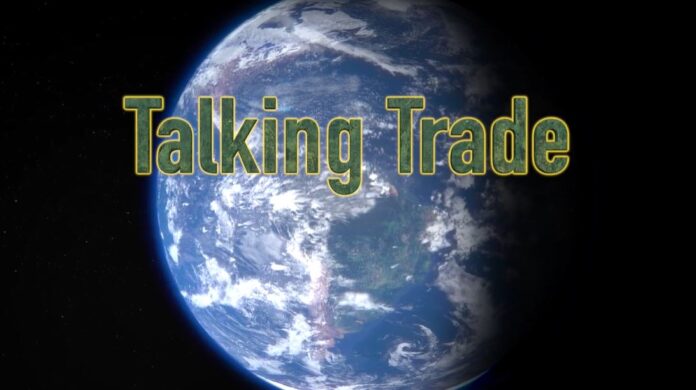In the latest episode of “Talking Trade,” Aquarius Systems President Jane Dauffenbach discusses how tariffs are impacting the North Prairie company.
The business makes various machinery for aquatic applications, ranging from weed harvesters to excavators, trash skimmers and more.
Dauffenbach says Aquarius Systems has been exporting since 1970, shipping aquatic plant harvesters to customers in Iceland’s kelp industry. Its products have now been shipped to dozens of countries across Europe, Africa, South America, Asia and elsewhere.
“I would declare before the world, we were the first company to ever produce a marine debris collection vessel,” she said. “So we’re working hard now on trying to get the word out to the rest of the world that we’re the OG in that space.”
The conversation explores how tariffs and related uncertainty are throwing a wrench into Aquarius Systems’ operations, as two pending orders in Canada have been “tabled” amid trade tensions with the U.S. government.
“My concern is that it’s because they’re irritated right now with the United States,” she said. “With that said, we are producing two other machines that are going to Canada, this summer that we’ll be shipping. And our customer there is concerned about retaliatory tariffs.”
The majority of the company’s customers are government entities, and Dauffenbach said one of its buyers in Canada doesn’t have enough wiggle room in its municipal budget to pay for the increased price under reciprocal tariffs.
Other prospects in Canada have remained “receptive,” she said, though she said she’s heard from other companies that have been stonewalled entirely “with almost no explanation.” Still, she said the business is also getting new inquiries from buyers in other countries that would be affected by tariffs.
Dauffenbach highlights some lessons learned from the pandemic-era supply chain disruptions, noting Aquarius Systems has modified its pricing structure to avoid getting caught by abrupt spikes in material costs. She also stresses the importance of export markets to the company’s future.
“I don’t know that there’s enough United States business to support the folks that are in this business long-term,” she said. “Because we need the world market, we need to have these other places to sell our product, in my opinion. It’s certainly contributed to, you know, to our success and I would hate to see that go away.”
Talking Trade is hosted by E.M Wasylik Associates Managing Director Ken Wasylik and M.E. Dey & Co. President and Managing Director Sandi Siegel.







